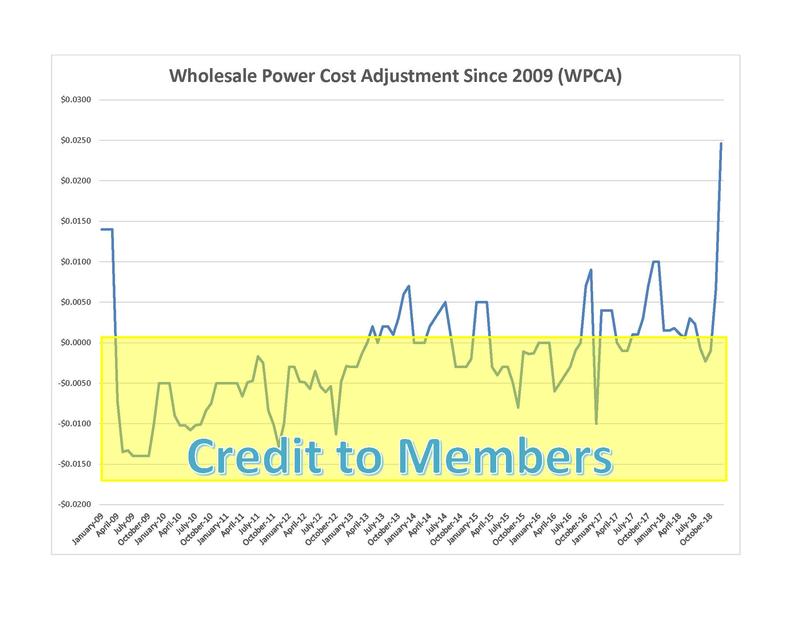For 2018, extraordinary weather events have seemingly saturated headlines in every season. Like many industries, Flint Energies’ business of providing power has been directly impacted by the weather. As year-end approaches, the negative impacts of weather on member electric bills are outpacing the positive.
The year started with extreme, artic cold for extended periods and the transition to spring was barely noticed as hot weather arrived early. Summer months were characterized by more rain than usual. Fall witnessed the violence of hurricanes, then an abrupt move to colder temperatures that has been interrupted by waves of consecutive days of rain.
For electric utilities, each weather event has direct bearing on the cost of power and the amount of power sold. Flint Energies aggressively manages power supply cost and the rates paid by Consumer-members with monthly decisions made on the Wholesale Power Cost Adjustment (WPCA). This WPCA takes into account not only the actual cost of power and the amount of power purchased, but also the projected sales and generation fuel costs for the remainder of the year. The WPCA is heavily influenced by the current and future cost of natural gas, as well as power cost recovery targets that must be met by year-end. The WPCA that is levied on a per kilowatt-hour basis, may be negative (resulting in a credit to member monthly electric bills) or it may be positive (resulting in an addition to member bills).
For December, the WPCA will be a charge of +$0.0246 per kilowatt-hour (kWh), which translates into an addition of $24.60 to a member using 1,000 kWh during the month. This dramatic increase in the WPCA from the -$0.0001/kWh credit in October and the +$0.0066/kWh in November is the direct result of wet weather reducing power sales during the last two months, while also seeing natural gas prices suddenly spike with increases of more than 35% from October to November.
“Due to power revenue targets that must be met by the end of the end of December, we have no choice but to increase the WPCA for the final month of the year,” stated Bob Ray, President/CEO of Flint Energies. He added, “Our aggressive management of power costs that aims to pass along the benefits of lower generation fuels costs each month to Flint Members, also has the unfortunate downside of having to share the impact of inclement weather and unexpected increases in natural gas generation costs.”
Flint Energies Consumer-members are encouraged to implement energy-efficient habits in their homes to reduce the impact of the WPCA on their energy bill. Since heating and cooling accounts for more than 50 percent of energy bills, setting the thermostat to 68 degrees in winter can optimize savings. For every degree above the recommended temperature in winter can cost an additional 3 to 5 percent in energy costs and increase the negative impact of the WPCA. Members can conduct an online energy audit at www.togetherwesave.com for other energy saving ideas.

The WPCA has been used as a power cost management tool on Flint bills since December 2004, the majority of which it have been a negative value, or credit, to Consumer-members as shown by the line graph found above. Read more about the Wholesale Power Cost Adjustment at www.flintenergies.com
